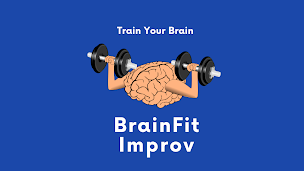How You Can Change Your Brain
Here are what a few have written about neuroplasticity:
"Your brain is a relentless shape-shifter, constantly rewriting its own circuitry — and because your experiences are unique, so are the vast detailed patterns in your neural networks. Because they continue to change your whole life, your identity is a moving target; it never reaches an end point." David Eagleman, neuroscientist – The Brain: The Story of You
"… the very structure of our brain — the relative size of different regions, the strength of connections between one area and another — reflects the lives we have led. Like sand on a beach, the brain bears the footprints of the decisions we have made , the skills we have learned, the actions we have taken." Sharon Begley – Train Your Mind, Change Your Brain: How a New Science Reveals Our Extraordinary Potential to Transform Ourselves
"The idea that the brain can change its own structure and function through thought and activity is, I believe, the most important alteration in our view of the brain since we first sketched out its basic anatomy and the workings of its basic component, the neuron." Norman Doidge, M.D. – The Brain That Changes Itself: Stories of Personal Triumph from the Frontiers of Brain Science
Because of neuroplasticity, your habits, thought patterns, and ways of reacting to the world –- good and bad –- get etched into your brain. One of the biggest culprits in harming the brain is stress. High levels of repeated stress lead to chronic inflammation, which can have adverse effects on the brain, resulting in reduced motivation, mental agility, and decreased connectivity. Chronic stress can also produce high levels of the stress hormone, cortisol. Prolonged levels of cortisol can produce mood disorders and shrink the part of the brain responsible for learning and memory.
It's not just stress. Our habits, addictions, and negative thoughts are literally hard wired into our brains. Those inner voices in our head that tell us we're not worthy, that catastrophize every possible outcome, or cause us to fail, change our brain. When we tell ourselves we need that drink to unwind, or we need to grab a smoke, or go shopping, or eat an entire box of Oreos, we are wiring our brains for failure. Our thoughts change the neuronal make-up of our brain.
The good news about neuroplasticity is that it also works the other way. The positive things we put into our brain also get hard wired. When we practice mindfulness, we become more focused and calm. Making new friends gives us positive reinforcement and exposes us to new cultures and ideas. When you expose your brain to something that is novel or complex, it reacts, it grows and becomes more adaptable. When you do something creative, paint, write, draw, act, sing, or perform Improv, you strengthen the connections in your brain. You also produce new neural pathways that help to improve overall cognitive functioning and abilities. Research shows us that by doing more divergent thinking you increase in gray matter volume. Your brain actually gets bigger!
No matter what our age, we can continue to feed and strengthen our brain. Healthy food, antioxidants, exercise are crucial to brain health. Also crucial is to keep a curious mind. Never stop learning, never stop exploring the world around you. Engage in skills that challenge you, maybe even frighten you a little. Don't let your brain get lazy. One of the healthiest things you can do for your brain is keep laughing. Laughter truly is the best medicine. The reason I named my Improv workshops BrainFit, however, is that what I do is as much about keeping the brain strong as it is about theater and laughter. Being on stage can be fun and exciting but I do Improv to stay alive. An active brain and active body lead to a better and longer life. As Mr. Spock might say, "Live long and prosper, do Improv."




Comments
Post a Comment